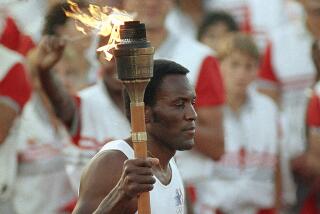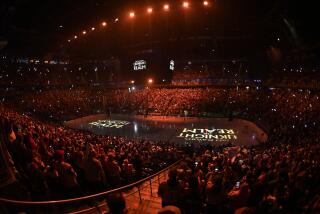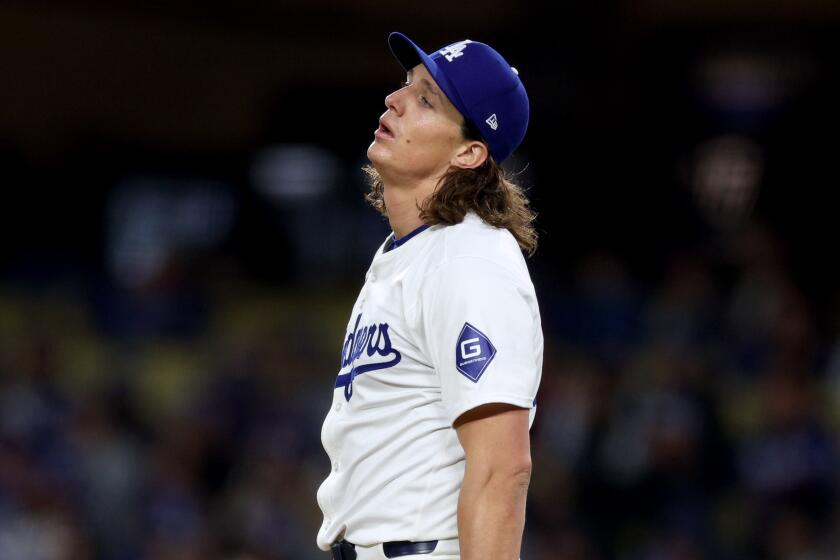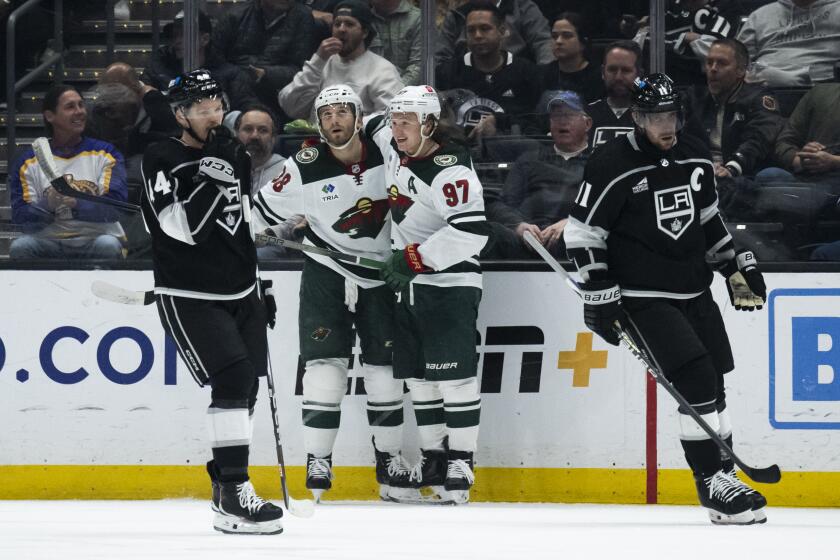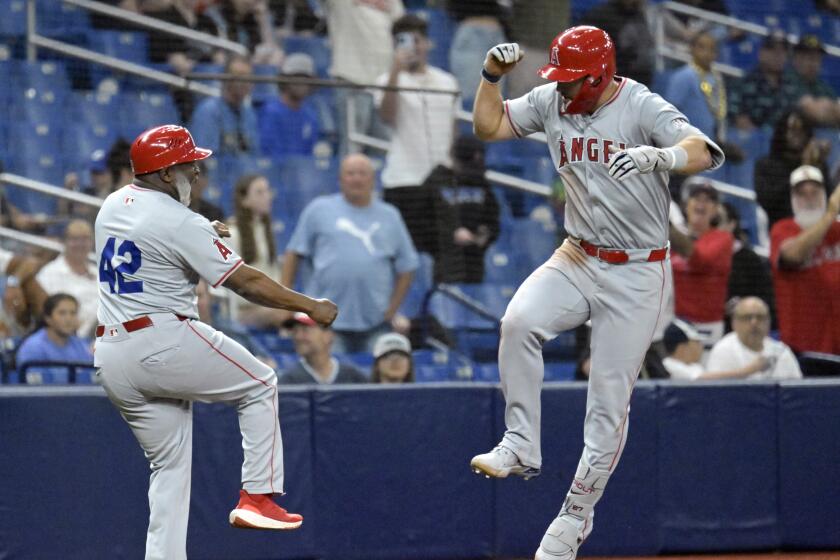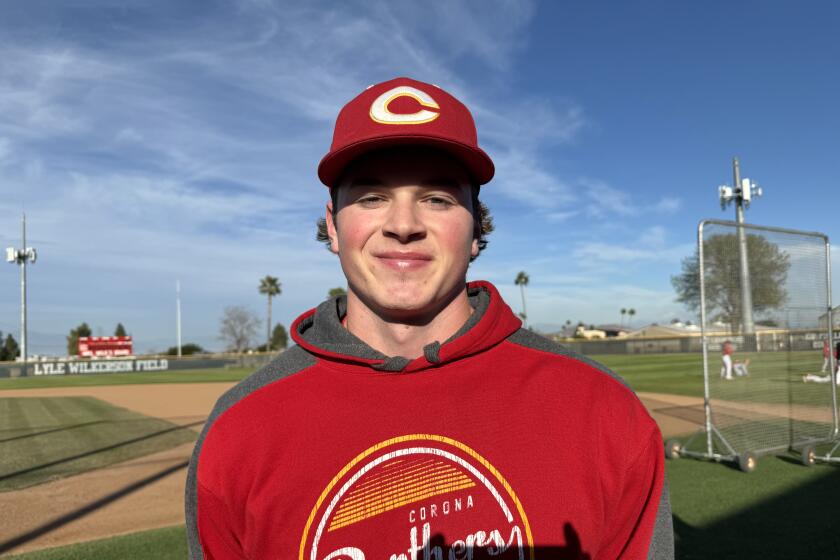Column: Russians are great sports, even in hockey loss to Americans
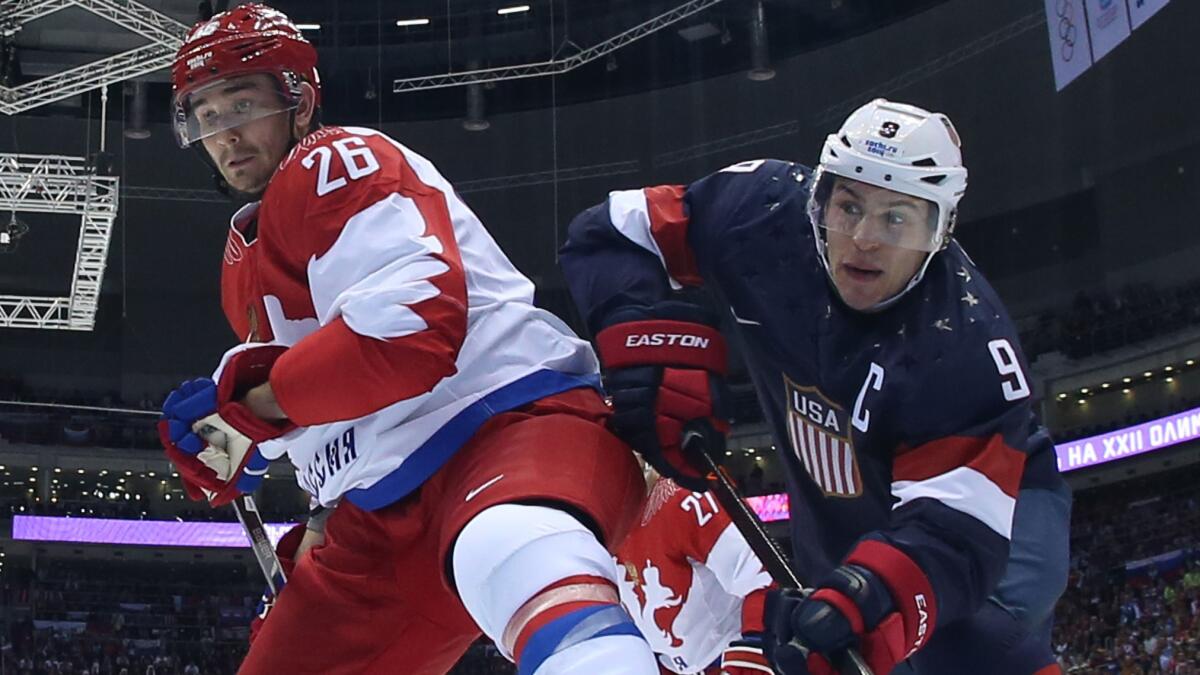
They had spent nearly three hours pouring their hearts across the sticky floor of the smoky basement bar.
They had cheered, groaned, cursed, crushed empty cigarette packs in frustration, danced past empty vodka bottles with glee, and chanted in baritone for their beloved Russia.
Then they lost.
FRAMEWORK: Best images from Sochi Games
When American T.J. Oshie scored in the eighth round of a shootout to give the U.S. a 3-2 victory over Russia in a first-round Olympic hockey game Saturday night, it was a devastating ending for the several dozen fans crowding into the So Leone sports bar in downtown Sochi.
But the group of mostly middle-aged men did not immediately leave. They picked their chins out of their chests, stood slowly from their couches and chairs, and lined up in front of the two Americans sitting meekly in the middle of the room.
Then, one by one, they shook our hands.
===
Far from the carefully painted faces and organized cheers at the Bolshoy Ice Dome, the Russian sporting soul was on display in a dark, wood-lined room with two giant televisions, one small dart board, and a lifetime of angst.
The So Leone sports bar was 35 minutes up the Black Sea coast from the game between Russia and the U.S., but it pounded with a cramped and honest pulse of a nation on edge.
“This is our sport, this is our life,” said patron Denis Puzyrez, standing at the bar in a rumpled T-shirt and hopeful stare. “Even if we fail in everything else in Olympics, if we win hockey, we win the Olympics.”
Yet it was more than the Olympics that led them to crowd into this tiny room whose outside wall is adorned with a huge photo of toothless Russian hockey players. This was also their first chance for home Olympic revenge of the U.S. “Miracle on Ice” win over the seemingly unbeatable Soviet team in 1980 in Lake Placid, N.Y.
“The 1980 game will forever be a scar on my heart,” said 69-year-old Vladimir Makushkin, pausing while carrying his beer from table to table. “Every American knew we were the stronger team. It was students that beat us … young students!”
It was this sort of atmosphere that made one expect the worst as I plopped down on a leather couch with one of my editors here shortly before the start of the game. The other patrons, all men except for our translator’s daughter, stared at us. The tension heightened just before the opening faceoff when a large man stood in front of me, pointing at both me and a giant television.
I cowered. He smiled.
“I want to make sure I’m not sitting in your way,” he said.
So, we spent the rest of the evening not cheering against each other, but watching together. Beneath the ever-present scowls and throaty chants, the stereotype-crashing Russian fans showed a clear sensitivity about patriotism and definition of sport.
“Some people try to put politics into our games, but not us. …You support your team, we’ll support ours,” said Alexsandr Shaulsky.
When the Russians scored, as they did twice during regulation and three times during the shootout, the place erupted in a moving roar, folks running toward the television and jumping off the couches.
“Dat-suk, Dat-suk,”’ they chanted in honor of Russia’s two-goal star Pavel Datsyuk.
“Puck, puck, puck!”’ they chanted as if trying to score from behind their meat soup and pancakes.
When Russia’s Fyodor Tyutin appeared to score the go-ahead goal with 4:40 remaining in regulation, the room became a sweaty mosh pit of hugs and hand-slaps to the tune of a blaring horn someone suddenly pulled out of a bag under the bar.
Yet when the goal was disallowed a couple of minutes later because the net had come off its moorings — an issue that was clearly visible on instant replay — nobody screamed or even complained. The place simply fell silent with pained acceptance, the same silence that accompanied each American score, except perhaps for the occasional banging of a table or clattering of a plate.
Never did the cheering sections cross. Never were there boos. Not once did the Russians look at us to gloat, as often happens in American sports bars. And not once did they look at us to see if we were gloating.
There was a bit of politics, but it was Russian politics, the display occurring when the television showed a cheering Russian President Vladimir Putin.
“Papa, Papa, Papa is home!” shouted one fan to a mixture of laughter and boos.
The Russian fans also showed some of the same superhuman skills that were once the trademark of their athletes. One guy in a Russian baseball cap and scarf began drinking vodka shots with his three buddies in the first period … fell asleep with head back and mouth open in the second period … then awoke in the third period to lead a chant of “Rus-y-a, Rus-y-a.”
“Hockey is so important, my wife watches,” Makushkin said. “‘Can you imagine a woman watching this kind of game?”
I didn’t have the heart to tell him that a woman columnist for this newspaper is in the Hockey Hall of Fame.
Just before the shootout, Makushkin walked over and said, “If this game ends in a tie, that would be perfect.”
It didn’t end in a tie, but it was perfect anyway, American eyes opened to a strange and wonderful brand of Russian sportsmanship. I know, because we shook on it.
More to Read
Get our high school sports newsletter
Prep Rally is devoted to the SoCal high school sports experience, bringing you scores, stories and a behind-the-scenes look at what makes prep sports so popular.
You may occasionally receive promotional content from the Los Angeles Times.


